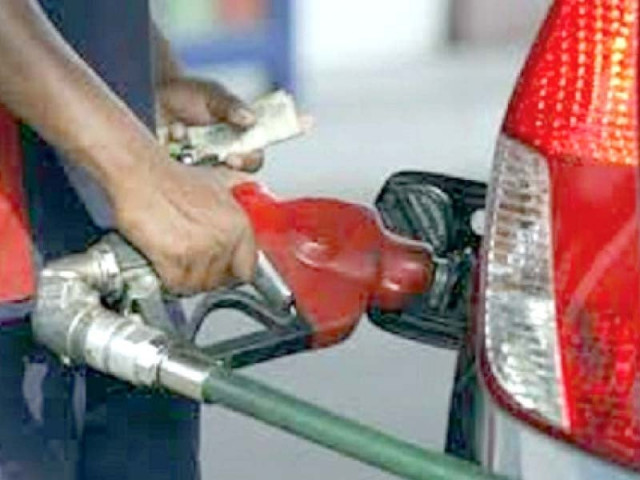Populism takes back seat under caretakers
POL prices jacked up by a whopping Rs20

In the very first move after coming to power, the interim government of Prime Minister Anwarul Haq Kakar on Tuesday jacked up the prices of petroleum products by up to Rs20, almost a fortnight after the previous government made a similar increase.
In a stunning display of legislative acrobatics in July, the joint sitting of parliament redrew the lines of political authority as it bestowed upon the upcoming caretaker set-up with an unprecedented mandate to navigate major economic and political landscapes.
Parliament increased the powers of the caretaker set-up by amending Section 230 of the Elections Act of 2017, among other things.
“Provided that sub-sections (1) and (2) shall not apply where the caretaker government has to take actions or decisions regarding existing bilateral or multilateral agreements or the projects already initiated under the Public Private Partnership Authority Act, 2017 (VIII of 2017), the Inter-Governmental Commercial Transactions Act, 2022 (XXX of 2022) and the Privatisation Commission Ordinance, 2000 (LII of 2000)," the substituted clause of Section 230 read.
However, instead of explicitly defining the term “existing”, parliament has opened the gateway for the caretaker set-up to wield significant economic authority during its fleeting three-month tenure, which was earlier supposed to bridge the gap before an elected government assumes power after the general elections.
The caretaker set-up has raised the price of petrol by Rs17.50 per litre for the last fortnight of August (16 to 31).
“The petroleum prices in the international market have increased during the last fortnight and as a result, the consumer prices in Pakistan are also being revised,” a statement issued by the finance ministry said.
Following the upward revision of Rs17.50 per litre, the price of petrol has increased to Rs290.45 per litre from the previous Rs272.95 per litre.
Read Another possible petroleum price hike looms over August
Similarly, with the fresh jump of Rs20 per litre, the price of high speed diesel (HSD) has reached Rs293.40 per litre from the earlier Rs273.40 per litre.
In the last revision of its tenure, the PDM government had also increasedincreased the prices of petrol and HSD by Rs19.95 per litre and Rs19.90 per litre, respectively for the first fortnight of August.
The HSD is mainly used in the transport and agriculture sectors. Therefore, an increase in its price will have a direct inflationary impact on the life of the common man.
In the case of petrol, it is used in motorbikes and cars. It is also considered to be an alternative to CNG.
However, CNG retail outlets, especially in Punjab, had been operating on imported gas as indigenous gas was not available for the last over a decade.
As the prices in Pakistan continue going up due to the depreciation of the rupee against the dollar, the smuggling of oil from Iran had increased that had hit the legal oil industry in Pakistan hard.
The local oil industry had been voicing concerns regarding smuggled oil from Iran that led to a drop in sales of legal oil industry but no action had been taken so far.
Due to the shortage of the dollar, the previous PDM government had also ignored the smuggling of petroleum products as it was meeting domestic demand.
The main reason for the increase in oil prices was also due to a hike in the international oil market and the depreciation of the rupee against the US dollar.
For the next fortnight, the government has not changed the petroleum levy on petrol and it will remain at the existing level of Rs55 per litre, however, for the HSD, it has been reduced by Rs5 per litre from the earlier Rs55 per litre to Rs 50 per litre. The GST will remain zero on both products.
Earlier, the government used to share increase/decrease in the prices of HSD, petrol, kerosene oil and light diesel oil, however, since the last few fortnights, it is merely sharing the prices of petrol and HSD.
The prices of petroleum products will be effective from Aug 16, 2023, till further revision which is due on Aug 31.



















COMMENTS
Comments are moderated and generally will be posted if they are on-topic and not abusive.
For more information, please see our Comments FAQ